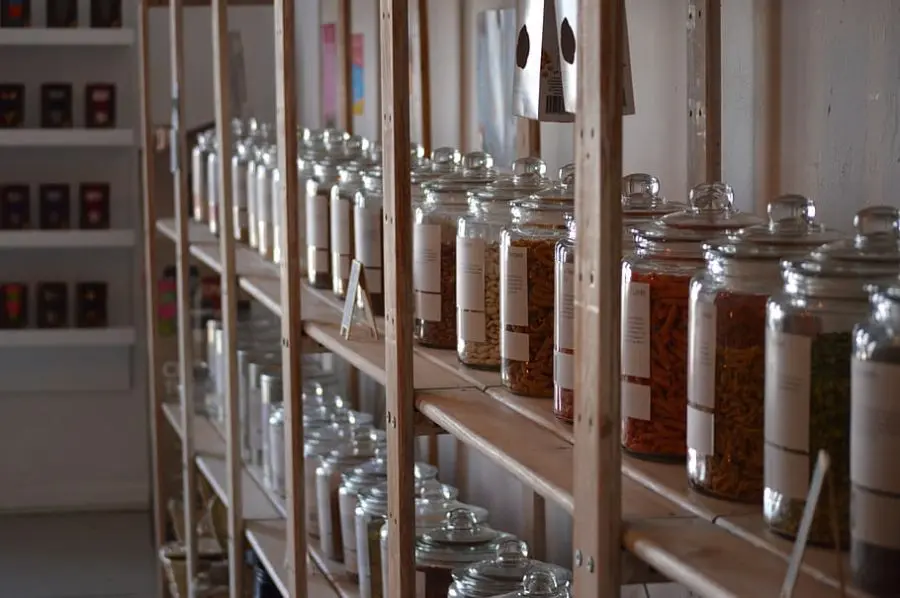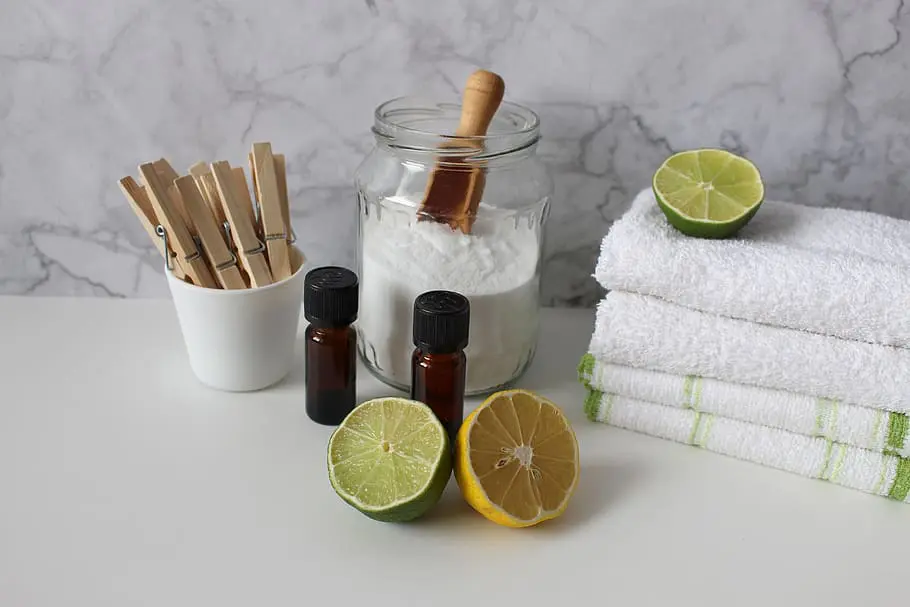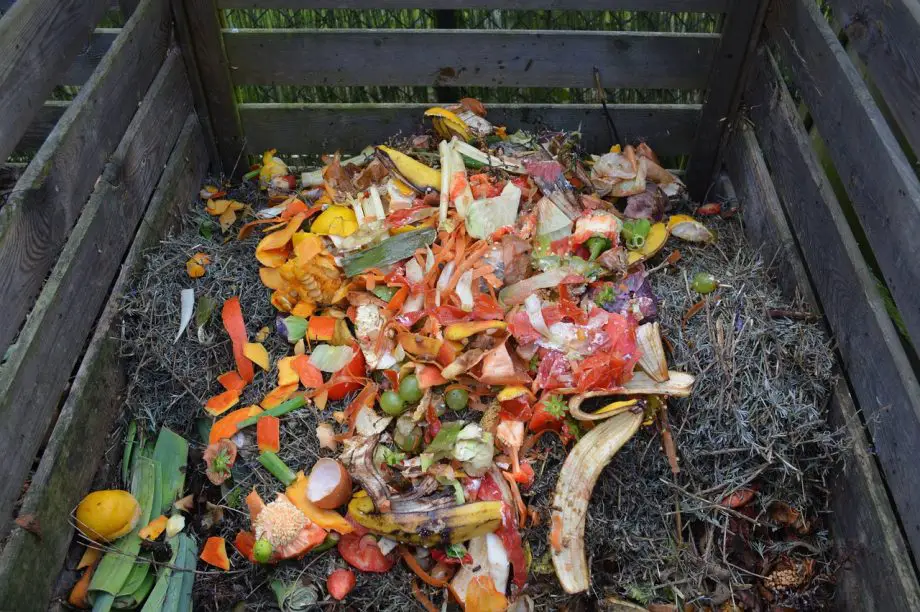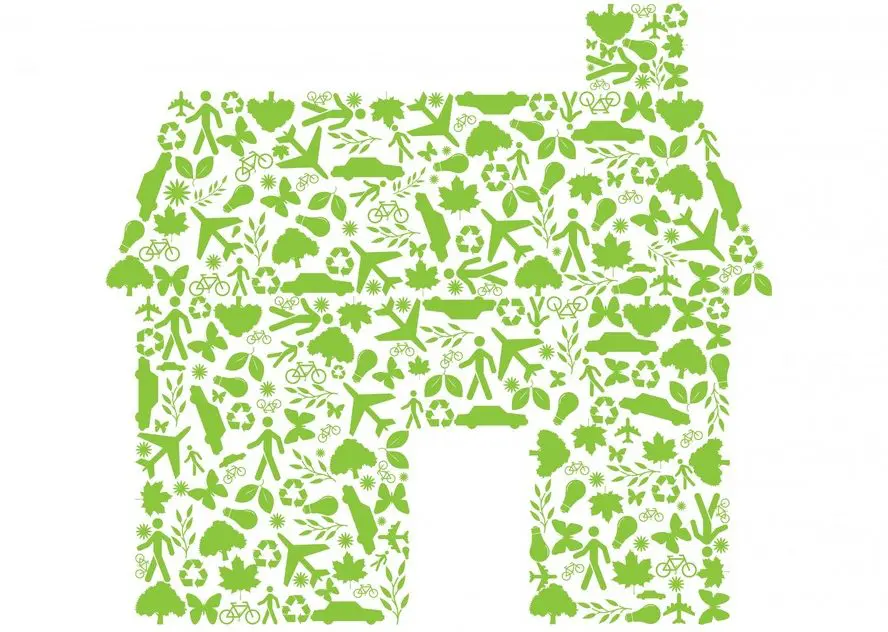
Discover practical tips on how to go zero waste on a budget. Embrace a sustainable lifestyle without breaking the bank. Start your journey today!
Ever thought about how to go zero waste on a budget? It might sound like a tall order, but it’s not only possible, it’s also fun and rewarding!
Whether you’re looking to make small changes or dive headfirst into a sustainable lifestyle, going zero waste doesn’t have to break the bank.
In fact, it can even save you money in the long run. So grab your reusable bags and mason jars, and let’s explore the best ways to reduce waste without pinching pennies!
How to Go Zero Waste on a Budget
Embarking on a journey of how to go zero waste on a budget? You’re in the right place!
In this guide, we’ll explore everything from the basics of what zero waste means to practical tips for making it work on a tight budget.
We’ll debunk common myths, share creative ways to reuse household items, and even dive into the world of DIY products.
Whether you’re new to the zero waste movement or looking to take your sustainable living to the next level, there’s something here for everyone. Let’s get started on this exciting path together!
Definition of Zero Waste
Going zero waste is more than just a trend; it’s a lifestyle choice that aims to minimize waste to the bare minimum.
But what does zero waste really mean? In simple terms, it’s about reducing what we throw away, reusing as much as we can, and recycling the rest.
It’s about embracing reusable containers instead of plastic bags, choosing fresh produce over packaged food, and thinking twice before buying a new item.
It’s a journey, not a destination, and every small step counts!
Zero waste is a set of principles focused on waste prevention that encourages redesigning resource life cycles so that all products are repurposed (i.e. “up-cycled”) and/or reused. The goal of the movement is to avoid sending trash to landfills, incinerators, oceans, or any other part of the environment. Currently 9% of global plastic is recycled.[1] In a zero waste system, all materials are reused until the optimum level of consumption is reached. From Wikipedia
Importance of Zero Waste
1. Environmental Benefits
The zero waste lifestyle is a great way to reduce your carbon footprint and make a positive impact on the planet.
By avoiding single-use plastics like plastic bottles and bags, you’re helping to reduce pollution in our oceans and landfills.
Even small changes, like using a reusable water bottle or shopping at the local farmers market, can have a huge impact on reducing plastic waste and conserving natural resources.
2. Economic Benefits
Good news! Going zero waste can actually save you a lot of money in the long run.
By buying in bulk, using reusable containers, and making your own cleaning and beauty products, you can cut down on unnecessary expenses.
Plus, shopping at thrift stores and embracing second-hand items is not only eco-friendly but also budget-friendly.
Challenges of Going Zero Waste on a Budget
1. Misconceptions about Cost
One of the first things people often think is that going zero waste is expensive.
While some sustainable products might have an additional cost upfront, the savings over time can be significant.
Investing in quality items like stainless steel containers or a safety razor can save much money in the long run.
2. Availability of Resources
Depending on where you live, finding bulk stores or zero waste shops might be a challenge.
But don’t let that stop you! Many grocery stores offer bulk options, and social media groups can be a good place to find local resources.
Plus, making your own food and products is not only fun but also an easy way to control what goes into them.
D. Overview of the Blog Post
So, are you ready to embark on your zero waste journey? In this blog post, we’ll guide you through practical tips, real-world examples, and success stories to inspire and empower you.
From understanding the principles of zero waste to exploring ways to make it work on a tight budget, we’ve got you covered.
Whether you’re a seasoned pro or just getting started, there’s something here for everyone. Let’s make less waste and more memories together!
Understanding Zero Waste
Ready to dive deeper into the world of zero waste? Understanding what it truly means is the first step on this exciting path.
It’s more than just a buzzword; it’s a philosophy, a way of life, and a commitment to our planet.
In this section, we’ll explore the history, principles, and common myths about zero waste.
Whether you’re just curious or fully committed to a waste-free lifestyle, getting to know the ins and outs of zero waste will empower you to make informed and impactful choices.
So, let’s unravel the mystery together and discover what zero waste is all about!
History and Origin of the Zero Waste Movement
The zero waste movement didn’t just pop up overnight; it has roots that go back several decades.
Believe it or not, the idea of producing less waste has been around since the early 20th century.
However, the term zero waste started gaining traction in the 1990s when communities and businesses began to recognize the importance of reducing waste.
The movement has grown from a niche concept to a global initiative, embraced by individuals, cities, and companies alike.
It’s a testament to how small changes can lead to a significant shift in how we think about waste and consumption.
Principles of Zero Waste -The 5 Rs
The principles of zero waste go beyond just recycling. They encompass a holistic approach to waste management and sustainable living. Here’s a breakdown of what it’s all about:
1. Refuse: Say no to unnecessary items, especially single-use products.
2. Reduce: Cut down on what you need by being mindful of what you buy.
3. Reuse: Before throwing something away, think if it can be used again.
4. Recycle: Properly recycle materials like glass jars, cardboard boxes, and more.
5. Rot: Compost food items and natural materials to return nutrients to the earth.
These principles guide the zero waste journey, helping to create a circular economy where everything has a purpose and nothing is wasted.
Common Myths and Misconceptions
Let’s clear up some common myths about zero waste:
It’s All or Nothing: Not True! Zero waste is a journey, and even small steps can make a big difference.
It’s Expensive: While some reusable items might cost more upfront, they often save money in the long run.
It’s Too Hard: With a little creativity and effort, anyone can reduce waste. From using reusable produce bags to buying fresh produce at the farmer’s market, there are plenty of ways to start.
Only for the Eco-Conscious: Zero waste living benefits everyone, not just those passionate about the environment. It’s about making mindful choices that can lead to a healthier lifestyle and a happier wallet.
Understanding these myths helps break down barriers and makes the zero waste lifestyle more accessible and enjoyable.
Remember, it’s not about perfection; it’s about making better choices, one step at a time.
Tips for Going Zero Waste on a Budget

Alright, now that we’ve got the basics down, let’s get into the nitty-gritty of how to go zero waste on a budget.
Think it’s a tall order? Think again! With a sprinkle of creativity, a dash of determination, and a whole lot of heart, you can embrace a zero waste lifestyle without emptying your wallet.
Whether you’re a seasoned eco-warrior or just starting your zero waste journey, these tips and tricks are designed to make sustainable living accessible and fun.
So grab your reusable bags and mason jars, and let’s dive into some practical ways to reduce waste and save money at the same time!
Reuse What You Have
One of the best ways to embrace zero waste living without spending a dime is to reuse what you already have. Let’s explore how:
1. Creative Ways to Repurpose Items
Got some old T-shirts lying around? Turn them into reusable produce bags or cleaning rags.
Empty glass jars from pasta sauce? They make fantastic containers for bulk storing food items or even as vases for fresh flowers.
An old cardboard box can become a fun playhouse for kids or a storage solution.
The possibilities are endless, and the only limit is your imagination.
Repurposing items is not only a great way to reduce waste but also a fun and creative way to give new life to things you might otherwise throw away.
2. Repairing Instead of Replacing
In a world where it’s often easier to buy a new item than fix an old one, repairing might seem like a lost art.
But it’s a skill worth reviving! Whether it’s sewing a button back on a shirt, patching up a hole in a pair of jeans, or fixing a leaky faucet, repairing instead of replacing can save you a lot of money and reduce waste.
And don’t worry if you’re not a DIY expert; there are plenty of online tutorials and local workshops that can help you learn.
Plus, repairing something yourself can be incredibly satisfying. It’s a small step that goes a long way in your zero waste journey.
By reusing what you have, you’re not only embracing the principles of zero waste but also making sustainable choices that are kind to both your wallet and the planet.
It’s proof that you don’t need to buy new stuff to live a fulfilling and eco-friendly life. Sometimes, the most sustainable products are the ones you already own!
Buy in Bulk
1. Benefits of Bulk Buying
Buying in bulk is a fantastic way to reduce packaging waste and save money. By purchasing items like grains, spices, or cleaning products in larger quantities, you often pay less per unit.
Plus, you can use your own containers, like mason jars or reusable bags, to cut down on plastic waste. It’s a win-win for both your wallet and the environment!
2. How to Start Bulk Buying
Starting with bulk buying is easier than you might think. Many grocery stores have bulk sections where you can fill your own containers.
Just remember to weigh your container first, so you only pay for what’s inside.
And don’t be shy to start small; even buying one or two items in bulk can make a difference.
Bring Your Own Containers
1. Types of Reusable Containers
From stainless steel lunch boxes to beeswax wraps, there are plenty of reusable containers to choose from.
You can even repurpose glass jars or plastic containers you already have at home.
The key is to find what works best for you and make it a habit to carry them with you.
2. Benefits of Using Your Own Containers
Using your own containers not only reduces single-use plastics but also helps you control portion sizes and keep food fresh. It’s a small change that can have a big impact on reducing waste.
Shop at Zero Waste Stores
1. Finding Local Zero Waste Stores
More and more zero waste stores are popping up, offering package-free shopping options.
A quick search online or on social media can help you find local options. And don’t forget to support your local farmer’s market for fresh produce without all the packaging!
2. Online Zero Waste Shopping Options
Can’t find a zero waste store nearby? No worries! There are plenty of online options that offer sustainable and package-free products.
Just be mindful of shipping materials and choose options that align with your zero waste goals.
Make Your Own Products
1. DIY Cleaning Products
Making your own cleaning products is not only easy but also cost-effective.
With simple ingredients like vinegar, baking soda, and essential oils, you can whip up everything from all-purpose cleaners to laundry detergents.
2. DIY Personal Care Products
From toothpaste to deodorant, there are plenty of DIY recipes for personal care products. It’s a fun way to know exactly what’s going into what you use and reduce plastic waste.
Compost

1. Home Composting Methods
Composting at home is easier than you think. Whether you have a yard or live in an apartment, there are methods to suit your space.
From traditional compost bins to worm composting, turning food waste into nutrient-rich soil is a rewarding process.
2. Community Composting
No space to compost at home? Look for community composting options in your area. Many cities offer drop-off locations or pick-up services.
Recycle and Donate
1. Proper Recycling Techniques
Recycling is more than just tossing items in a bin. Knowing what can and can’t be recycled in your area and cleaning items properly ensures that they actually get recycled.
2. Places to Donate Unwanted Items
Before tossing something, consider donating it. Thrift stores, shelters, and even local buy nothing groups are often happy to take items in good condition.
By embracing these tips, you’re well on your way to a zero waste lifestyle that doesn’t have to break the bank.
It’s about making mindful choices and enjoying the journey. Every small step counts, and you’re doing great!
Zero Waste Lifestyle Choices

Okay, we’ve covered the basics, and now it’s time to dive into the everyday choices that make zero waste living a reality.
It’s not just about what you buy; it’s about how you live. From the kitchen to the bathroom, from travel to family life, zero waste is a lifestyle that can permeate every part of your day.
And guess what? It’s not only doable but also enjoyable! In this section, we’ll explore how to make zero waste choices in various aspects of your life.
So, whether you’re cooking dinner, packing for a trip, or simply brushing your teeth, there’s a way to do it sustainably. Let’s explore how!
Zero Waste in the Kitchen
The kitchen is often the heart of the home, and it’s also a place where you can make significant strides in your zero waste journey.
Here’s how:
Cooking: Plan meals to avoid food waste, and use fresh produce from the farmer’s market to minimize packaging.
Storing Food: Use beeswax wraps, glass jars, or reusable containers to store food instead of plastic wrap or bags.
Drinking: Opt for tap water over bottled water, and use a reusable water bottle.
Cleaning: DIY cleaning products and reusable paper towels can replace single-use items.
Recycling: Separate your waste properly, and consider composting food scraps.
The kitchen is a great place to start making small changes that can have a huge impact on reducing waste.
Zero Waste in the Bathroom
The bathroom might be a smaller space, but it’s filled with opportunities for zero waste living:
Personal Care: Swap disposable razors for a safety razor, use a bamboo toothbrush, and consider a menstrual cup.
DIY Products: Make your own toothpaste or deodorant with simple ingredients.
Towels and Linens: Opt for natural materials and avoid single-use products.
Recycling: Know what can be recycled in your area, including toiletry packaging.
With a little creativity, you can turn your bathroom into a zero waste haven.
Zero Waste While Traveling
Traveling doesn’t have to derail your zero waste efforts:
Packing: Use reusable bags and containers for snacks, and bring your own water bottle and utensils.
Accommodations: Look for eco-friendly hotels or Airbnb hosts who embrace sustainability.
Transport: Use public transport where possible, or consider carpooling.
Souvenirs: Opt for meaningful and sustainable souvenirs instead of mass-produced trinkets.
Traveling zero waste might require a bit more planning, but it’s a rewarding way to explore the world responsibly.
Zero Waste with Kids and Family
Involving the whole family in the zero waste journey can be both fun and educational:
Teaching: Educate your kids about the importance of reducing waste and involve them in making choices.
Activities: Get creative with DIY projects, like making toys from household items or crafting with natural materials.
Shopping: Encourage second-hand shopping for clothes and toys, and involve kids in grocery shopping at bulk stores.
Celebrations: Plan waste-free birthdays or holidays by using reusable decorations and serving homemade treats.
Embracing zero waste with kids and family turns sustainability into a shared adventure.
By integrating zero waste practices into different aspects of your life, you’re not only reducing waste but also fostering a deeper connection with the things you use and the world around you.
It’s a lifestyle that celebrates mindfulness, creativity, and community. And the best part? You’re already on the right track!
Zero Waste on a Budget FAQ

Got questions about going zero waste? You’re not alone! The journey to a waste-free lifestyle is filled with curiosity, excitement, and yes, a few head-scratchers.
But don’t worry, we’ve got you covered! In this FAQ section, we’ll tackle some of the most common questions people have about zero waste living.
From the golden rules to grocery shopping, from saving money to starting at home, we’ll answer the questions that might be buzzing in your mind.
So, grab a cup of tea (in a reusable mug, of course!), and let’s dive into these frequently asked questions together!
Q: What are the five golden rules for zero waste?
A: The five golden rules for zero waste are often referred to as the 5 R’s:
Refuse: Say no to unnecessary items and single-use plastics.
Reduce: Minimize your consumption and buy only what you need.
Reuse: Use items multiple times and repurpose them creatively.
Recycle: Recycle materials properly according to local guidelines.
Rot: Compost organic waste to return nutrients to the earth.
These principles guide the zero waste journey and help create a more sustainable lifestyle.
Q: Does being zero waste save money?
A: Yes, being zero waste can save money! By buying in bulk, using reusable containers, making your own products, and shopping second-hand, you can cut down on expenses.
While some sustainable products might cost more upfront, the long-term savings can be significant.
Q: How do I start zero waste at home?
A: Starting zero waste at home is all about taking small steps. Begin by assessing your current waste (a trash audit can be helpful), then focus on one area at a time, like the kitchen or bathroom.
Swap single-use items for reusable alternatives, buy in bulk, and embrace DIY solutions. Remember, it’s a journey, not a destination, so take it at your own pace!
Q: How to do zero waste groceries?
A: Zero waste groceries are all about planning and preparation. Bring your own reusable bags and containers, shop in the bulk section, and choose fresh produce without packaging.
Support local farmer’s markets and consider joining a local buy-nothing group. It might take a little extra time initially, but it becomes second nature with practice.
Q: Is zero waste possible for everyone?
A: Zero waste is a goal and a mindset, and while achieving absolute zero waste might not be possible for everyone, making strides toward reducing waste is achievable.
Focus on what you can control and make changes that fit your lifestyle, budget, and circumstances.
Every effort counts, and there’s no one-size-fits-all approach. Embrace the journey and celebrate the progress you make!
These answers provide a glimpse into the world of zero waste living, but remember, there’s always more to learn and explore.
Case Studies and Success Stories
Feeling inspired but still wondering how all these zero waste principles play out in real life?
You’re in luck! In this section, we’ll share some incredible case studies and success stories from individuals, communities, and businesses that have embraced the zero waste lifestyle.
These real-world examples show that going zero waste is not only possible but also incredibly rewarding.
From families reducing their household waste to entire cities implementing sustainable practices, these stories are proof that small changes can lead to big impacts.
So, let’s dive in and meet some of the everyday heroes of the zero waste movement!
Individuals Who Have Successfully Gone Zero Waste
The zero waste journey is deeply personal, and it’s inspiring to see how individuals from all walks of life have embraced it:
The Budget-Conscious Student: Meet Sarah, a college student who managed to go zero waste on a tight budget. From making her own cleaning products to shopping at thrift stores, she proves that sustainable living is accessible to everyone.
The Family on a Mission: The Johnson family decided to reduce their waste as a New Year’s resolution. With small children in tow, they found creative ways to involve the whole family, from DIY crafts to farmers market outings.
The Retiree Giving Back: Tom, a retiree, turned his passion for woodworking into a zero waste endeavor by repurposing old furniture and using reclaimed wood. His story shows that it’s never too late to start.
These individual stories highlight the diversity and adaptability of the zero waste lifestyle.
Communities and Cities Embracing Zero Waste
Zero waste isn’t just an individual effort; entire communities and cities are getting on board:
The Small Town Making a Big Difference: In Greenfield, a small town committed to zero waste, community composting and recycling programs have drastically reduced landfill waste.
The City Leading the Way: San Francisco has set ambitious zero waste goals, implementing city-wide composting, banning single-use plastics, and encouraging businesses to follow suit.
The Community Gardens: Neighborhoods across the country are starting community gardens, promoting local food production, and reducing food waste.
These examples show that collective efforts can lead to significant change and foster a sense of community pride.
Businesses Implementing Zero Waste Practices
Businesses play a crucial role in the zero waste movement, and many are stepping up to the challenge:
The Zero Waste Coffee Shop: Brewed Awakenings, a local coffee shop, has eliminated single-use cups and offers discounts for customers who bring their own mugs.
The Sustainable Manufacturer: GreenTech, a tech company, has implemented a closed-loop manufacturing process, recycling and reusing materials in its products.
The Grocery Store Going Package-Free: Fresh & Free, a grocery chain, has introduced package-free aisles and bulk buying options, encouraging customers to bring their own containers.
These businesses prove that sustainability and profitability can go hand in hand.
The stories in this section are more than just case studies; they’re a testament to the power of determination, creativity, and community.
They show that zero waste is not a distant dream but a tangible reality that’s unfolding all around us.
Whether you’re an individual, part of a community, or running a business, there’s a place for you in the zero waste movement. Let these success stories inspire you to write your own!
Real World Examples of Zero Waste In Practice
Here are real-world examples of individuals, communities, cities, and businesses that have made significant strides in the zero waste movement. Here are a few:
Individuals:
Bea Johnson: Known as one of the pioneers of the zero waste lifestyle, Bea Johnson and her family have been living a waste-free life since 2008. She has written a book, Zero Waste Home, sharing her experiences and tips.
Communities and Cities:
San Francisco, California: San Francisco has been a leader in the zero waste movement, aiming to achieve zero waste by 2030.
The city has implemented comprehensive recycling and composting programs and has banned single-use plastic bags.
Capannori, Italy: This small town in Italy was the first in Europe to declare a zero waste goal.
They have implemented various waste reduction strategies, including promoting reusable packaging and reducing waste in schools.
Businesses:
Unilever: This multinational consumer goods company has committed to making all of its plastic packaging recyclable, reusable, or compostable by 2025.
Eileen Fisher: The clothing brand Eileen Fisher has a take-back program where customers can return old clothing items to be repaired, resold, or recycled.
You can see Eileen Fisher’s clothing on Amazon
Package Free Shop: Founded by zero waste advocate Lauren Singer, this store offers sustainable, reusable products, aiming to make a zero waste lifestyle more accessible.
These real-world examples demonstrate that the principles of zero waste are being embraced across different sectors of society, and they provide tangible models for others to follow.
Going Zero Waste on a Budget Conclusion

And here we are, at the end of our zero waste journey together but hopefully, it’s just the beginning for you!
We’ve explored the what, why, and how of going zero waste on a budget, and we’ve seen that it’s not only possible but also exciting and fulfilling.
Whether you’re ready to dive right in or just dip your toes, every step you take makes a difference.
In this conclusion, we’ll recap the key points, leave you with some encouragement.
So, take a deep breath, give yourself a pat on the back, and let’s wrap this up with a big sustainable bow!
Recap of Key Points
We’ve covered a lot of ground together, haven’t we? Let’s take a moment to revisit the highlights:
Understanding Zero Waste: From its history to its principles, we’ve explored what zero waste really means.
Tips for Going Zero Waste on a Budget: We’ve shared practical tips, from reusing what you have to recycling and donating, all tailored to fit a budget.
Zero Waste Lifestyle Choices: We’ve looked at how to make zero waste choices in various aspects of life, including in the kitchen, bathroom, while traveling, and with family.
Real-World Success Stories: We’ve been inspired by individuals, communities, and businesses that have successfully embraced zero waste.
These key points provide a roadmap to a more sustainable and budget-friendly lifestyle.
Encouragement and Call to Action
You’ve got this! Going zero waste doesn’t have to be overwhelming or expensive.
Start small, be patient with yourself, and celebrate the progress you make.
Remember, it’s not about perfection; it’s about making conscious choices that align with your values.
So, why not take the first step today? Maybe it’s bringing your own reusable bags to the grocery store or trying a DIY cleaning product.
Every effort counts, and you’re part of a growing community of people making a positive impact.








